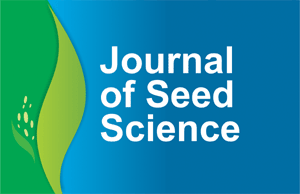Seed treatment with insecticides and fungicides has become an important practice for ensuring initial plant stand in establishing crops. In this context, the aim of this study was to evaluate the influence of chemical seed treatment with insecticides and fungicides on the physiological quality and health of the seeds of wheat cultivars. Seeds of the wheat cultivars BRS Pardela and BRS Gaivota were used, subjected to the following chemical treatments: 1- control, 2- carboxin + thiram + imidacloprid + thiodicarb, 3- carbendazim + thiram + imidacloprid + thiodicarb, 4- fipronil + thiophanate-methyl + pyraclostrobin, 5- triadimenol + imidacloprid + thiodicarb, 6- fipronil, and 7- imidacloprid + thiodicarb. Physiological quality was evaluated by tests of germination, accelerated aging, the length and dry weight of shoots and roots, and seedling emergence in the field. Seed health quality was evaluated by the blotter test method. The seeds of the wheat cultivars tested respond differently to the chemical treatments in regard to effects on germination and vigor. The treatment with triadimenol + imidacloprid + thiodicarb is harmful to seedling development. For the BRS Gaivota cultivar, the seed treatment with carboxin + thiram + imidacloprid + thiodicarb; and carbendazim + thiram + imidacloprid + thiodicarb improved seedling establishment in the field compared to the control.
Triticum aestivum L.; seed treatment; germination; vigor
